Commitment Maker
Through our Commitment to Action we will work with researchers to use innovative new AI technology to develop a risk assessment tool the medical community can use to improve birth outcomes.
Learn More
Thanks for your interest in the Changemakers Event! The Coachlight Clinic & Spa Raffle is now closed. Raffle winners will be announced onstage at the 11th Annual Changemakers Event on Tuesday, April 22.
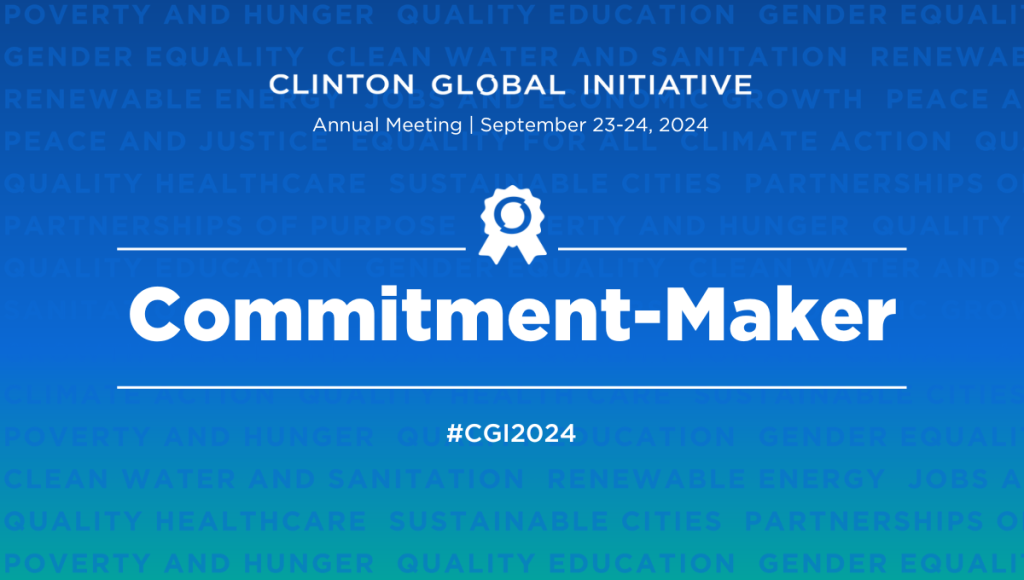
NEW YORK, NEW YORK – (Sept. 23, 2024) – Today, Healthy Birth Day, Inc. (HBD) announced at the Clinton Global Initiative (CGI) 2024 Annual Meeting innovative new AI technology and research that will help identify patterns and risk factors in pregnancy that may otherwise go unnoticed. Through their Commitment to Action with CGI, machine learning will help to reduce disparities in maternal and fetal health. A change in a baby’s movement patterns in the third trimester is often an early red flag in pregnancy that something might be going wrong. Maternal health researchers will study, through the Count the Kicks app, whether AI can accurately predict and warn providers when something is off.
In addition, the organization is unveiling its new ‘Ask Ana’ feature, an AI-generated assistant where users can receive evidence-based, curated responses to questions about baby’s movement, providing additional autonomy and advocacy for expectant parents. The AI-based assistant will provide real-time support to expectant mothers, offering insights tailored to their unique pregnancy experiences. After strong demand from current app users and doctors nationwide, Count the Kicks is also adding a contraction timer to its free app later this year.
This project expands upon promising success the organization has already had in saving lives through its Count the Kicks program. In Iowa where the program started, the organization witnessed a 32% overall stillbirth rate reduction in the first 10 years, and a 39% reduction in the Black stillbirth rate in just five years.
CEO Emily Price and Program Director Megan Aucutt are representing the organization at the CGI 2024 Annual Meeting to share the work with global leaders. “I look forward to meeting leaders who have had success in advancing solutions to our greatest global challenges and sharing how Count the Kicks is a solution that is working to improve birth outcomes for moms and babies everywhere,” Price said.
Count the Kicks is an early warning system that educates expectant parents to get to know what movement patterns are normal for their baby in the third trimester and empowers them to speak up to their provider if normal changes. Further modernizing the early detection tools to integrate AI will act as a communication tool to use between patient and provider, which can improve front line defense of critical pregnancy issues. The Count the Kicks app currently averages 11,000 new users every month as users enter the third trimester. An estimated 400,000 pregnant people through August 2027 will be impacted by this commitment.
“By leveraging AI to develop a data-driven risk assessment tool, we are laying the groundwork for more effective interventions to significantly improve birth outcomes. This work represents a crucial step forward in stillbirth prevention and maternal health, all while ensuring that our tools remain remain free, innovative and easy to use,” said Healthy Birth Day, Inc. Program Director Megan Aucutt, who oversees the organization’s research program and app innovations.
Research surrounding this project will create a roadmap to develop a risk assessment tool the medical community can use to improve outcomes, specifically for those most at risk of stillbirth and other adverse maternal and birth outcomes. In addition, HBD commits to share its lifesaving, evidence-based maternal health program Count the Kicks in communities impacted by health disparities, with a particular focus on Black expectant parents, who face a two times greater risk of experiencing stillbirth. Through CGI, HBD hopes to grow its partnerships across the country as the AI tool is being designed and tested. This includes increasing downloads of its free kick-counting app, training health workers, hosting community events, and distributing printed educational materials that are proven to save lives.
“We believe Healthy Birth Day‘s commitment will truly move the needle in improving birth outcomes and preventing stillbirths for vulnerable communities,” said Greg Milne, CEO of the Clinton Global Initiative. “By utilizing AI to impact maternal health inequities, we’re excited to amplify solutions to our most pressing common challenges.”
HBD seeks implementing partners with lived experiences and topic expertise related to maternal health barriers within Black communities for this Commitment to Action. The organization also seeks funding partners aligned with its mission to improve birth outcomes among Black expectant parents, which could include individual, corporate, and foundation donors as well as health departments, managed care organizations, and hospital systems. To become involved, please contact CEO Emily Price.

Commitment Maker
Through our Commitment to Action we will work with researchers to use innovative new AI technology to develop a risk assessment tool the medical community can use to improve birth outcomes.
Learn More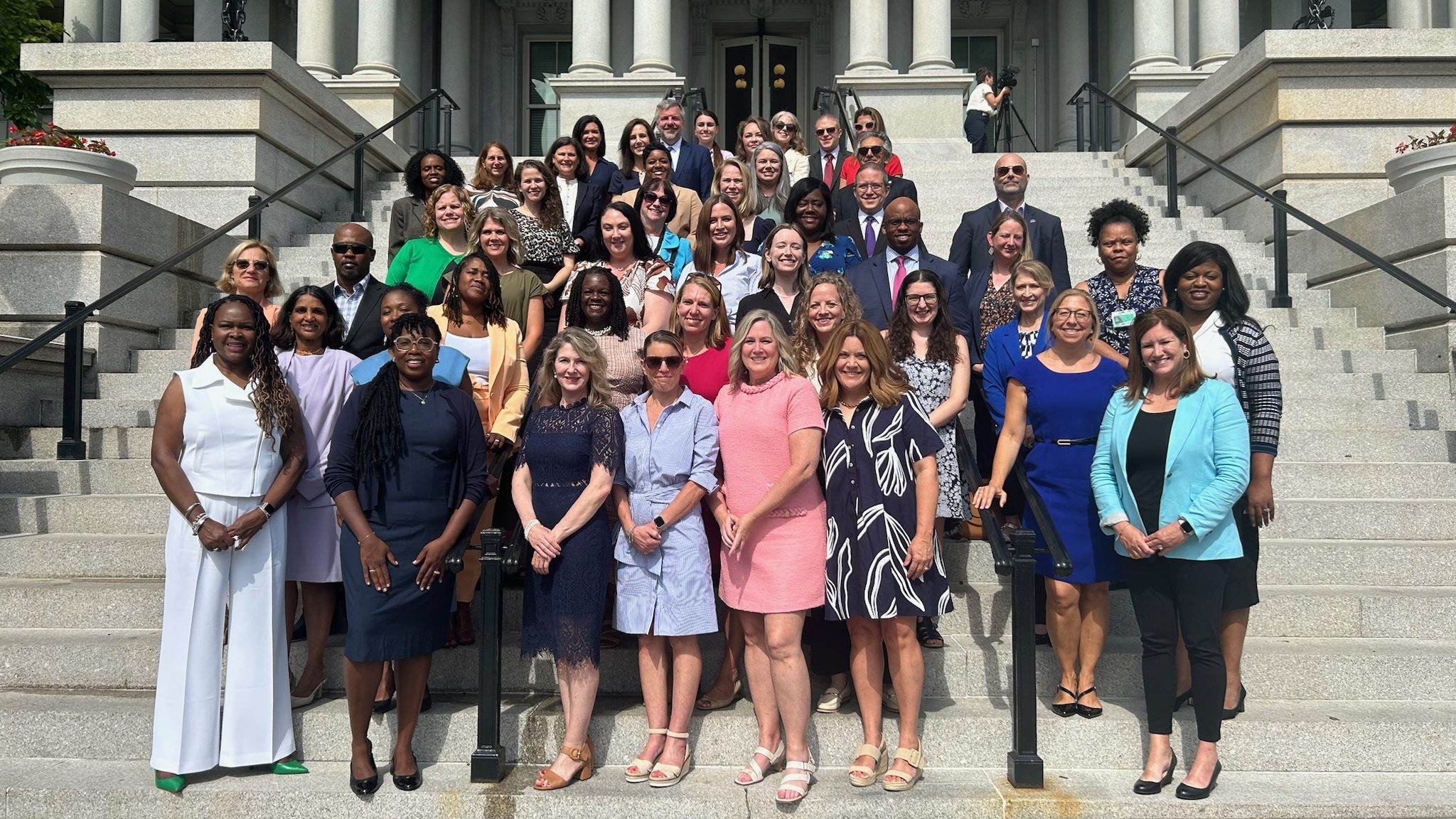
WASHINGTON, D.C. (July 12, 2024)- President Biden has signed the bipartisan Maternal and Child Health Stillbirth Prevention Act of 2024 (H.R. 4581). This law amends Title V of the Social Security Act to add stillbirth and stillbirth prevention, something that has been left off since it was written nearly 100 years ago. The Maternal and Child Health Stillbirth Prevention Act provides both clarity and a vital call to action to state health departments across the nation that they can and should use a portion of the existing $2.6 billion of Title V Block Grant funding to prevent stillbirth.
The Title V Block Grant is the single largest funding mechanism to address maternal and child health issues in the United States, with services reaching more than 93% of pregnant women in 2022. Currently, fewer than 20 state health departments are using a portion of these existing funds to address stillbirth, leaving expectant parents in most U.S. states and territories more vulnerable to stillbirth. This clarification will support stillbirth prevention activities, thereby helping to save the lives of mothers and babies.
Senators Jeff Merkley (D-Oregon) and Bill Cassidy (R-Louisiana) led The Maternal and Child Health Stillbirth Prevention Act in the Senate, where it passed on unanimous consent June 11. The House approved this bill on May 15 in a vote of 408-3, where it was led by Rep. Ashley Hinson (R-Iowa) and Rep. Alma Adams (D-North Carolina).
“The successful passage of The Maternal and Child Health Stillbirth Prevention Act means the voices of thousands of grieving mothers, fathers, siblings and grandparents made a powerful difference for future families, and Congress and the President acted. This is a significant step in making stillbirth a maternal health tragedy of the past. Change is coming,” said Emily Price, the CEO of Healthy Birth Day, Inc., the nonprofit organization that championed the bill.
Stillbirth, which is defined as the loss of a pregnancy at 20 weeks or greater gestation, is a public health crisis in the U.S. that happens to more than 21,000 families every year. This means one in every 175 pregnancies in the U.S. ends in stillbirth. Racial disparities persist, and Black women are two times more likely to endure a stillbirth than their White counterparts. Recent reports and data suggest that further reduction in the incidence of stillbirth is possible, highlighting that at least 25% of stillbirths are potentially preventable. That reduction would translate into as many as 6,000 babies’ lives that could be saved every year when stillbirth prevention measures are in place.
“This is a moonshot moment,” says Janet Petersen, co-founder of Healthy Birth Day, Inc. “Every expectant parent in the U.S. deserves their prenatal care to include evidence-based stillbirth prevention strategies like we have in Iowa. This bill will help make that possible.”
The annual number of stillbirths far exceeds the top five leading causes of deaths among children ages 0-14 years combined, including unintentional injuries, congenital anomalies, preterm birth, homicide, SIDS, and heart disease. Data from UNICEF comparing the United States to other countries shows that our nation can and must do more to prevent stillbirth. The 2023 report shows that in the last two decades, the U.S. stillbirth rate declined by a negligible 0.9% per year (2000-2021), putting our progress at 152nd out of 187 countries globally.
The Maternal and Child Health Stillbirth Prevention Act is endorsed by 50 maternal health organizations, including March of Dimes, ACOG, AMCHP, AWHONN, and SMFM. Full text of the Stillbirth Prevention Act is available at Congress.gov. Visit bit.ly/StopStillbirth to learn more about stillbirth prevention legislation in the 118th Congress.
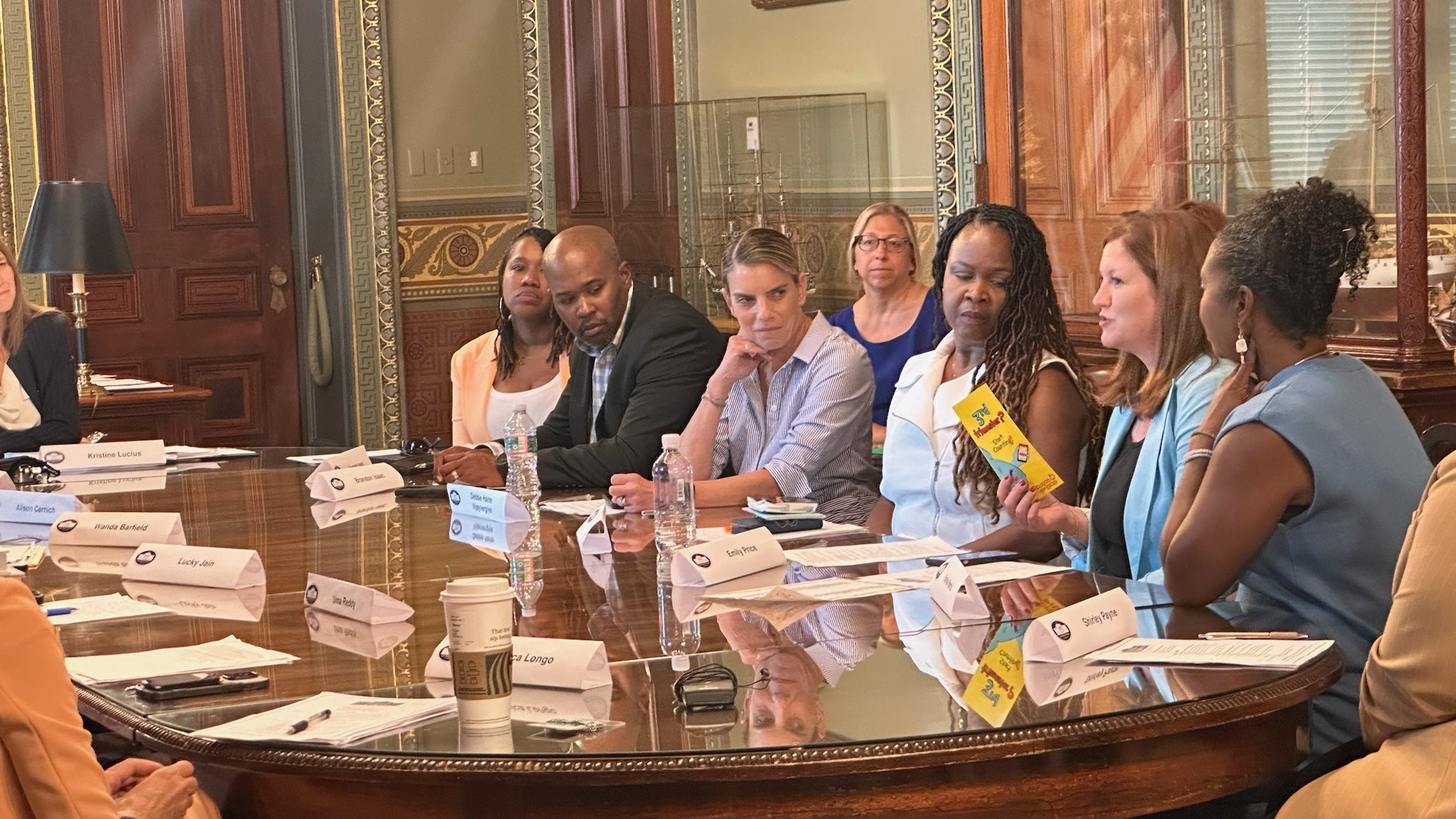
On Monday, July 8, 2024, stillbirth prevention advocates and members of the Healthy Birth Day, Inc. team were invited to participate in a panel discussion on the stillbirth crisis hosted by the Biden-Harris Administration at the White House complex. The event coincided with the passage of The Maternal and Child Health Stillbirth Prevention Act. The panel discussion included Healthy Birth Day, Inc. CEO Emily Price, Count the Kicks Ambassador Tomkea Isaac and her husband Brandon, founders of Jace’s Journey, and Healthy Birth Day, Inc. Board Member Rose L. Horton.
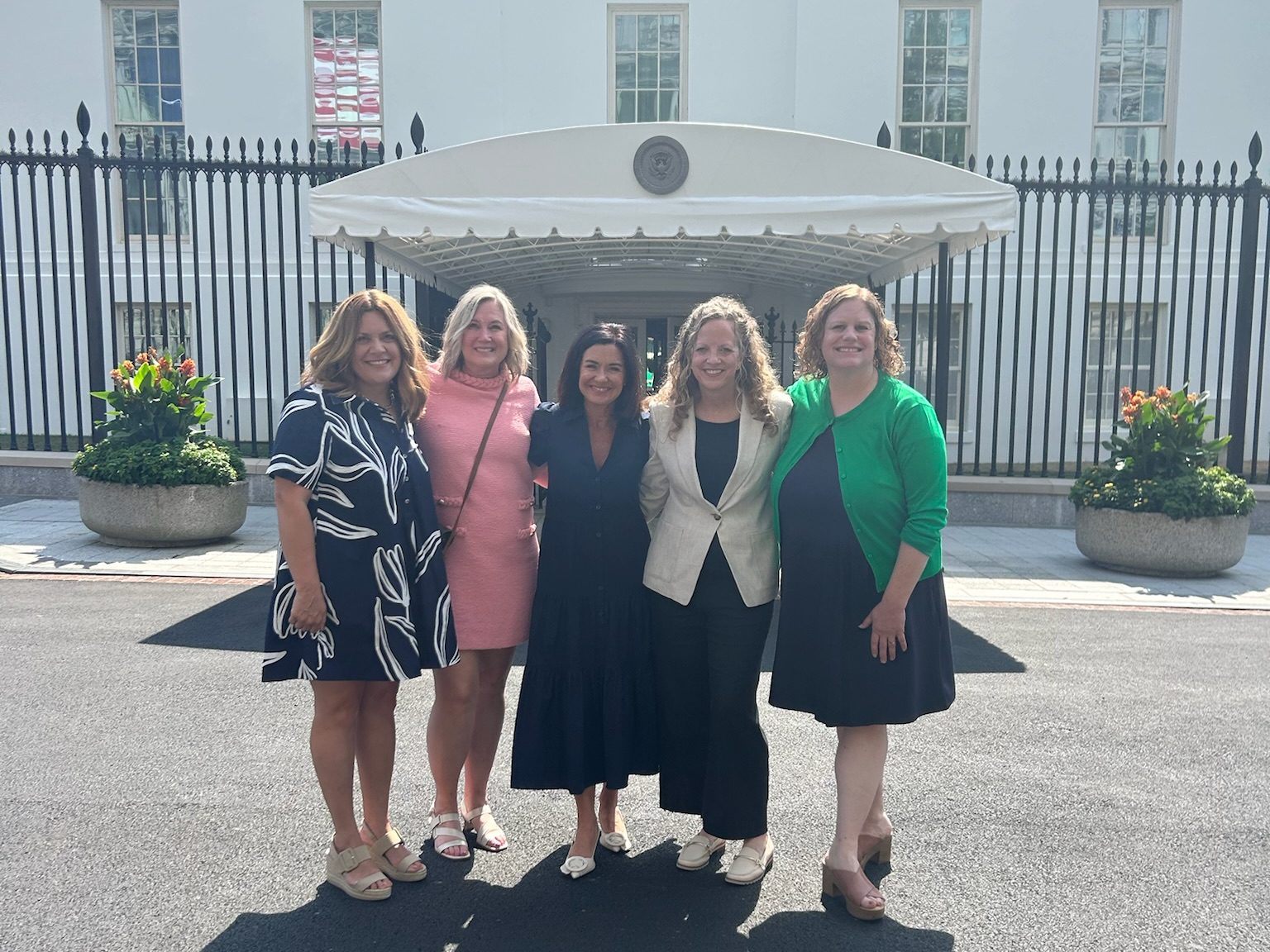
The five founders of Healthy Birth Day, Inc. also traveled to Washington, D.C. to attend the White House event in honor of their daughters. From left, Kate Safris, Jan Caruthers, Tiffan Yamen, Iowa Sen. Janet Petersen, and Kerry Biondi-Morlan stand outside the White House on Monday, July 8, 2024.
In the early 2000s these women came together after losing their daughters to stillbirth or infant death. They decided to channel their grief into stillbirth prevention efforts to keep other families from experiencing the tragedy of stillbirth. Their efforts created our nonprofit organization, Healthy Birth Day, Inc., and led to the launch of the Count the Kicks stillbirth prevention program in 2008.
Healthy Birth Day, Inc. is the creator of the Count the Kicks stillbirth prevention program, which is credited with lowering the stillbirth rate in Iowa by more than 30% in the first 10 years (2008-2018). The free Count the Kicks app is a powerful stillbirth prevention tool to help expectant parents learn a simple method for fetal movement monitoring (kick counting). Healthy Birth Day, Inc. is a 501(c)(3) nonprofit organization dedicated to the prevention of stillbirth through programming, advocacy, and research. They are the primary stakeholders of The Maternal and Child Health Stillbirth Prevention Act (H.R. 4581) and a proud endorser of the SHINE for Autumn Act (H.R. 5012/S. 2657). Learn more at HealthyBirthDay.org and CountTheKicks.org.
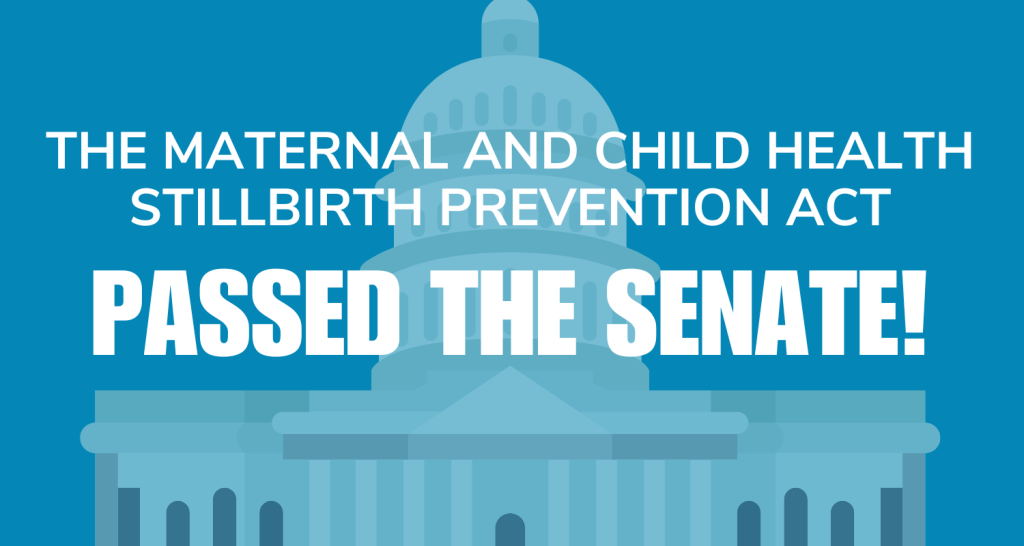
WASHINGTON, D.C. (June 11, 2024)- Today the bipartisan Maternal and Child Health Stillbirth Prevention Act of 2024 passed in the United States Senate on unanimous consent and is headed to President Biden’s desk for signature. This bill will add stillbirth and stillbirth prevention to Title V — the single largest funding mechanism to address maternal and child health issues in the United States. Stillbirth prevention has been left off Title V since its inception back in 1935. This change provides both clarity and a vital call to action from Congress to state health departments across the nation that they can and should use a portion of the existing $2.6 billion of Title V Block Grant funding to prevent stillbirth.
Senators Jeff Merkley (D-Oregon) and Bill Cassidy (R-Louisiana) led the legislation in the Senate. In the House, H.R. 4581 is led by Rep. Ashley Hinson (R-Iowa) and Rep. Alma Adams (D-North Carolina). It overwhelmingly passed the U.S. House on May 15, 2024, in a bipartisan vote of 408-3.
Stillbirth, which is defined as the loss of a pregnancy at 20 weeks or greater gestation, is a public health crisis in the U.S. that happens to more than 21,000 families every year. This means one in every 175 pregnancies in the U.S. ends in stillbirth, and racial disparities persist, with Black women two times more likely to endure a stillbirth than their White counterparts. Recent reports and data suggest that further reduction in the incidence of stillbirth is possible, highlighting that at least 25% of stillbirths are potentially preventable.
“As many as 6,000 babies’ lives could be saved every year when stillbirth prevention measures are in place. The successful passage of The Maternal and Child Health Stillbirth Prevention Act means the voices of thousands of grieving mothers, fathers, siblings and grandparents made a powerful difference for future families, and Congress acted. This never would have happened without the leadership of Senators Jeff Merkley and Bill Cassidy, and to them we are forever grateful,” said Emily Price, Healthy Birth Day, Inc. CEO.
The annual number of stillbirths far exceeds the top five leading causes of deaths among children ages 0-14 years combined, including unintentional injuries, congenital anomalies, preterm birth, homicide, SIDS, and heart disease. Data from UNICEF comparing the United States to other countries shows that our nation can and must do more to prevent stillbirth. The 2023 report shows that In the last two decades, the U.S. stillbirth rate declined by a negligible 0.9% per year (2000-2021), putting our progress at 152nd out of 187 countries globally.
Currently fewer than 20 state health departments are using a portion of these existing funds to address stillbirth, leaving expectant parents in most U.S. states and territories more vulnerable to stillbirth. This clarification will support stillbirth prevention activities, thereby helping to save the lives of mothers and babies. Congress was not asked for additional funding associated with this legislation.
“Getting this bill to President Biden’s desk is a huge victory for thousands of parents across the United States who have lost babies to stillbirth. I’m one of those parents,” said Iowa Sen. Janet Petersen, co-founder of Healthy Birth Day, Inc. “It’s a national call for all 50 states to make stillbirth prevention a prenatal health care priority. It’s a moonshot to help save moms and babies and make stillbirths a maternal health tragedy of the past.”
Healthy Birth Day, Inc. is proud to be the primary stakeholder of the Maternal and Child Health Stillbirth Prevention Act. The Stillbirth Prevention Act is endorsed by 1st Breath, Policy Center for Maternal Mental Health (formerly 2020 Mom), 2 Degrees Foundation, Association of Maternal & Child Health Programs (AMCHP), March of Dimes, Measure the Placenta, Mom Congress, PUSH for Empowered Pregnancy, “Reproductive and Placental Research Unit, Department of Obstetrics, Gynecology and Reproductive Sciences, Yale University School of Medicine”, Return to Zero: H.O.P.E., Society for Maternal-Fetal Medicine (SMFM), American College of Obstetricians and Gynecologists (ACOG), Every Mother Counts, Association of Women’s Health, Obstetric, and Neonatal Nurses (AWHONN), Start Healing Together, M.E.N.D. (Mommies Enduring Neonatal Death), Society for Reproductive Investigation (SRI), American College of Nurse-Midwives (ACNM), What to Expect Project, Postpartum Support International, Amniotic Fluid Embolism (AFE) Foundation, National Education Association (NEA), Association of Schools and Programs of Public Health (ASPPH), National Association of Nurse Practitioners in Women’s Health (NPWH), Maternal Mental Health Leadership Alliance, SUDC Foundation, RH Impact, the Dieudonne Foundation, and Bump and Beyond Family Services, LCC.
Full text of the Stillbirth Prevention Act is available at Congress.gov. Visit bit.ly/StopStillbirth to learn more about stillbirth prevention legislation in the 118th Congress.
Healthy Birth Day, Inc. is a 501(c)(3) nonprofit organization dedicated to the prevention of stillbirth through programming, advocacy, and research. They are the primary stakeholders of the Maternal and Child Health Stillbirth Prevention Act (H.R. 4581/S. 2231) and a proud endorser of the SHINE for Autumn Act (H.R. 5012/S. 2657). Healthy Birth Day, Inc. is the creator of the Count the Kicks stillbirth prevention program, which is credited with lowering the stillbirth rate in Iowa by more than 30% in the first 10 years (2008-2018). The free Count the Kicks app is a powerful stillbirth prevention tool to help expectant parents be more in tune with their bodies and their babies.
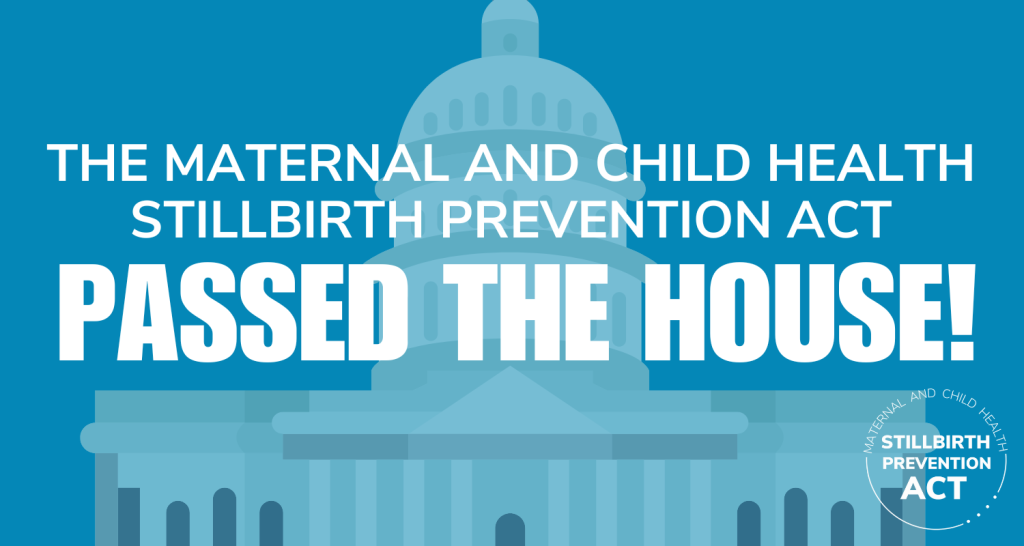
WASHINGTON, D.C. (May 15, 2024)- Bipartisan legislation by Rep. Ashley Hinson (R-IA) and Rep. Alma Adams (D-NC) has passed the House of Representatives on a vote of 408-3. The Maternal and Child Health Stillbirth Prevention Act has the ability to immediately unleash existing Title V Block Grant funds to prevent stillbirth, an outcome happening to one in every 175 pregnancies in the U.S. Title V is the single largest funding mechanism to support maternal and child health issues in the United States. This bipartisan legislation would add stillbirth and stillbirth prevention to Title V — something that has been lacking since the introduction of Title V funding back in 1935.
In the 118th Congress, the Maternal and Child Health Stillbirth Prevention Act was introduced into the Senate on July 11, 2023, by Senator Jeff Merkley (D-OR) and Senator Bill Cassidy (R-LA) and passed the Senate without amendment by unanimous consent on Sept. 30, 2023.
“The deafening silence of a baby born still echoes through hospitals across our country 65 times every single day. Stillbirth is a public health crisis, with more than 21,000 babies born still every year in the United States ― the annual number of deaths far exceeds the top five leading causes of deaths among children ages 0-14 years combined, including unintentional injuries, congenital anomalies, preterm birth, homicide, SIDS, and heart disease,” said Emily Price, Healthy Birth Day, Inc. CEO. “This legislation says we can end preventable stillbirths. Words cannot express our gratitude to Congresswomen Ashley Hinson and Alma Adams for their leadership on helping make stillbirth a maternal health tragedy of the past.”
Recent reports and data suggest that further reduction in the incidence of stillbirth is possible, highlighting that nearly 25% of stillbirths are potentially preventable. The number of stillbirths in the U.S. is higher than the number of babies that die during the first year of life and more than ten times the number of babies that die annually due to sudden infant death syndrome (SIDS). Data comparing the United States to other countries shows that our nation can and must do more to prevent stillbirth. In the last two decades, the stillbirth rate in the United States declined by a negligible 0.4 percent, and, in a report published by the World Health Organization comparing progress in improving stillbirth rates, the United States ranked 183 out of 195 countries.
The Maternal and Child Health Stillbirth Prevention Act will provide both clarity and a vital call of action from Congress to state health departments across the nation that they can and should use a portion of the existing $2.6 billion of Title V Block Grant funding to prevent stillbirth. Currently fewer than 20 state health departments are using a portion of these existing funds to address stillbirth, leaving expectant parents in most U.S. states and territories more vulnerable to stillbirth. This clarification will support stillbirth prevention activities, thereby helping to save the lives of mothers and babies. Congress was not asked for additional funding associated with this legislation.
“The passage of the Maternal and Child Health Stillbirth Prevention Act in the U.S. House is a significant milestone, as it signals a turning point where stillbirth is no longer overlooked. Families like mine affected by stillbirth can now find solace in knowing their voices are heard,” said Tomeka Isaac, a North Carolina Count the Kicks Ambassador whose son Jace should be celebrating his sixth birthday on Wednesday [May 15].
The Maternal and Child Health Stillbirth Prevention Act is endorsed by Healthy Birth Day, 1st Breath, Policy Center for Maternal Mental Health (formerly 2020 Mom), 2 Degrees Foundation, Association of Maternal & Child Health Programs (AMCHP), March of Dimes, Measure the Placenta, Mom Congress, PUSH for Empowered Pregnancy, “Reproductive and Placental Research Unit, Department of Obstetrics, Gynecology and Reproductive Sciences, Yale University School of Medicine”, Return to Zero: H.O.P.E., Society for Maternal-Fetal Medicine (SMFM), American College of Obstetricians and Gynecologists (ACOG), Every Mother Counts, Association of Women’s Health, Obstetric, and Neonatal Nurses (AWHONN), Start Healing Together, M.E.N.D. (Mommies Enduring Neonatal Death), Society for Reproductive Investigation (SRI), American College of Nurse-Midwives (ACNM), What to Expect Project, Postpartum Support International, Amniotic Fluid Embolism (AFE) Foundation, National Education Association (NEA), Association of Schools and Programs of Public Health (ASPPH), National Association of Nurse Practitioners in Women’s Health (NPWH), Maternal Mental Health Leadership Alliance, SUDC Foundation, and RH Impact.
The Maternal and Child Health Stillbirth Prevention Act of 2024 will return to the U.S. Senate for final approval so that it can be sent to the President’s desk to be signed into law.
Full text of the Stillbirth Prevention Act is available at Congress.gov. We encourage everyone to visit bit.ly/StopStillbirth as an easy way to learn more about stillbirth prevention legislation in the 118th Congress.
Healthy Birth Day, Inc. is a 501(c)(3) nonprofit organization dedicated to the prevention of stillbirth through programming, advocacy, and research. They are the primary stakeholders of the Maternal and Child Health Stillbirth Prevention Act (H.R. 4581/S. 2231) and a proud endorser of the SHINE for Autumn Act (H.R. 5012/S. 2657). Healthy Birth Day, Inc. is the creator of the Count the Kicks stillbirth prevention program, which is credited with lowering the stillbirth rate in Iowa by more than 30% in the first 10 years (2008-2018). The free Count the Kicks app is a powerful stillbirth prevention tool to help expectant parents be more in tune with their bodies and their babies. Learn more at HealthyBirthDay.org and CountTheKicks.org.

Kathleen McCoy is a Chicago-area stillbirth prevention advocate who is working in honor of her son James. Last year Kathleen and her husband Adam learned James’ heart had stopped beating when they went in for their scheduled C-section. After James was born still, Kathleen turned to running to channel some of her grief into something positive. She found that running helped, and decided to start training for her third marathon, which she completed in October in honor of James.
She chose the Marine Corps Marathon in Washington, D.C. because it holds a special place in her heart. Her beloved son James is named after her father James, a U.S. Marine Veteran who is buried at Arlington National Cemetery, where the marathon ended.
Kathleen decided to raise funds for Healthy Birth Day, Inc. in conjunction with the marathon, and so far her fundraising efforts have contributed more than $14,000 to help us further our mission to save babies.
Kathleen shares more about running the marathon in honor of James, and her hopes for the future of stillbirth prevention.
What made you decide to run a marathon and ask friends and family to support you?
Ever since James passed, I knew I wanted to do something where I felt like I was making a difference – where I could channel some of the anger and negativity into something positive. The marathon and fundraising gave me the space to do that!
Fundraising helped me with my determination to complete the long runs and marathon, knowing I wasn’t just doing it for me but for a greater good. Fundraising for the marathon also allowed me to feel comfortable sharing my story on a deeper level, to raise awareness about the stillbirth crisis, to raise awareness about Count the Kicks, and to continue to have my son’s legacy live on. Ever since I sent out the fundraising email, multiple people have told me that they have told others about Healthy Birth Day, Inc. and Count the Kicks, which I am so grateful for!
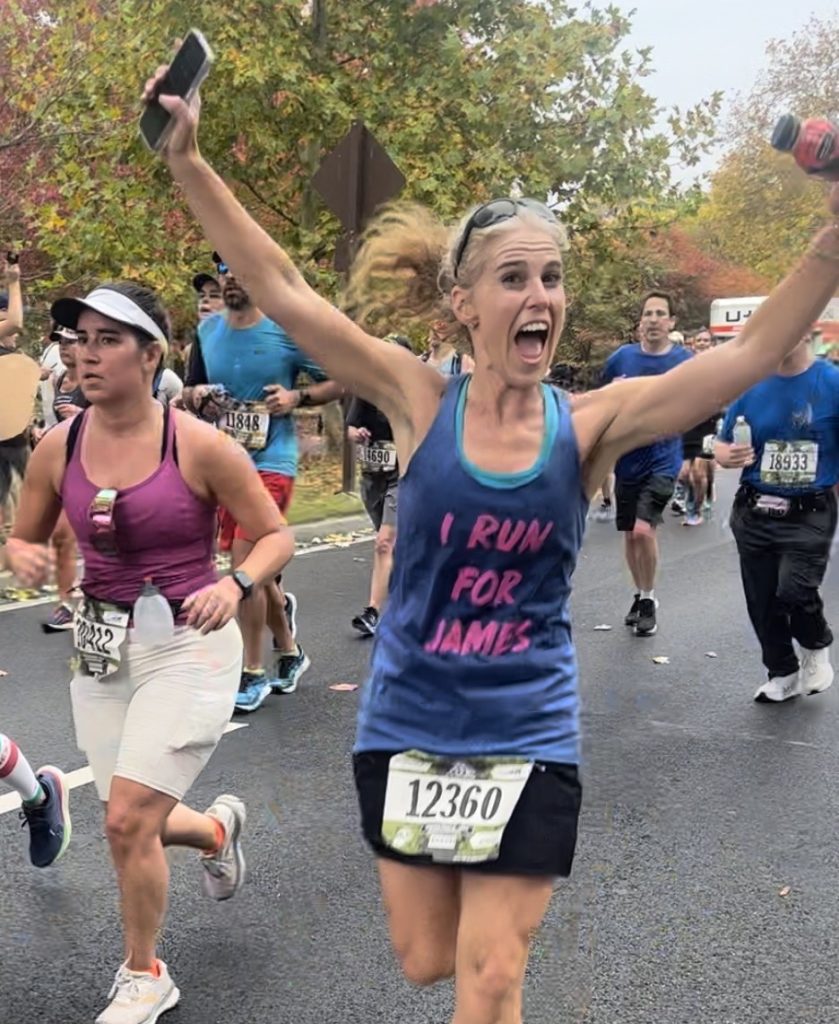
Why did you choose to support Healthy Birth Day, Inc.?
Healthy Birth Day, Inc. (HBD) has been instrumental in my healing. I have such gratitude for HBD. Being a part of the advocacy work has allowed me to have space to tell my son’s story – to have his legacy continue on. The advocacy trip to Washington, D.C., helped me personally feel like I was contributing to a greater good – and that something good could come from something so painful.
After the advocacy trip, I knew HBD is who I wanted to fundraise for because HBD IS making a difference for people like me. HBD is talking about stillbirths. HBD is advocating for families like me. And the people at HBD care and want to support people like me.
I find the passion that the team at HBD has inspiring and incredibly moving. I believe the work that HBD does saves lives and will prevent future families from experiencing the heartbreak my family has – that is so powerful to me personally!
How has running helped in your grief process?
Being physically active has always been something important to my mental health, but after I lost James, running became that much more important – it was my escape. Running has been a safe space for me to process and reflect on everything in a safe space.
Some days, especially in the beginning, when I was feeling a lot of negative thoughts, I would go for a run. During the run, if I felt myself becoming fixated on negative thinking, I would take off and run faster! I would come home exhausted, but with a lighter mind and body.
Running has helped me to feel stronger both inside and out. Running has helped to ground me.
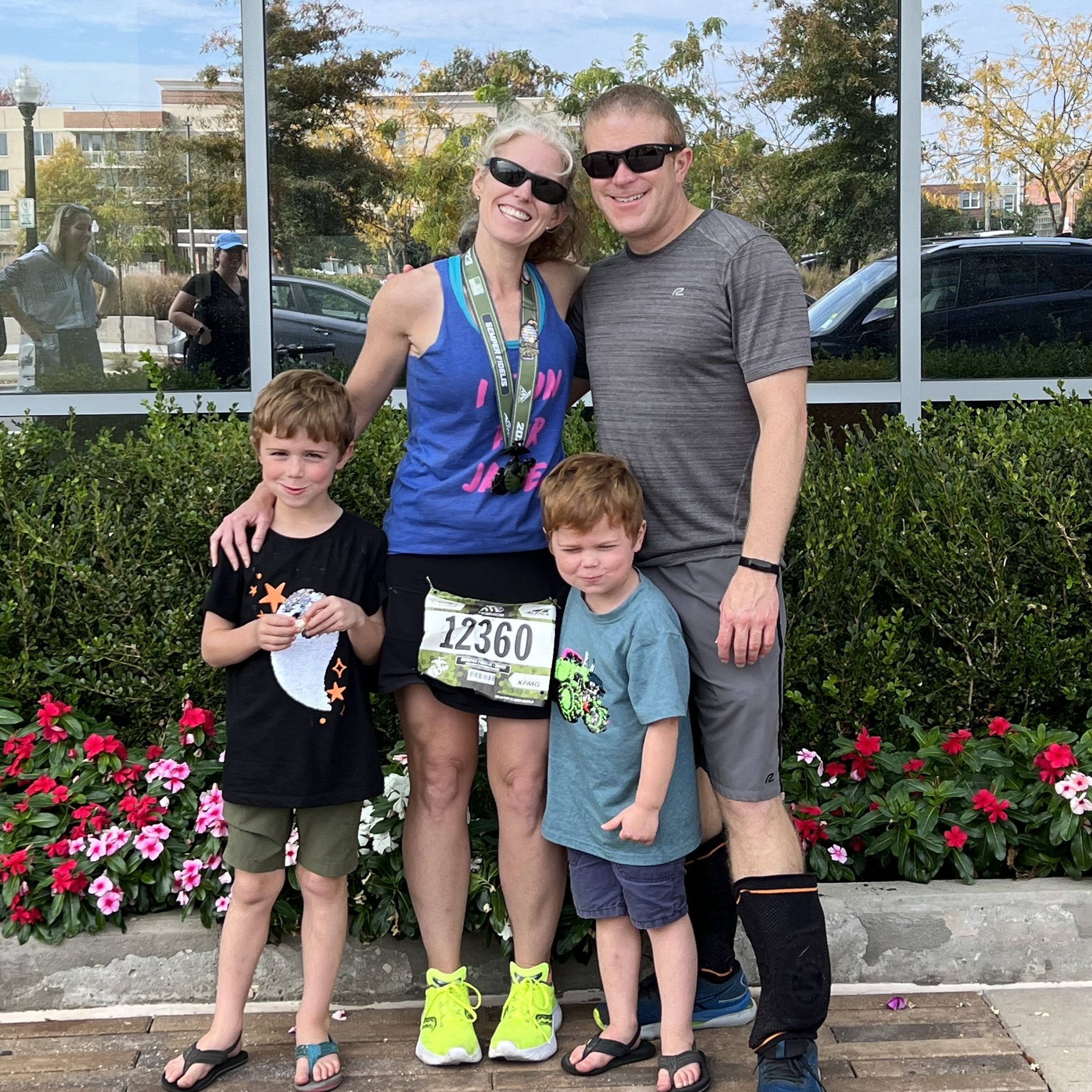
What do you hope happens with stillbirth prevention in this country?
I hope that people continue to talk about stillbirths and continue to elevate this crisis so that fewer families experience what mine did. My hope is that providers start talking with patients more about fetal movement monitoring and incorporating more preventive measures into prenatal care so that less families experience this heartbreak. Also, I hope that by talking about stillbirths more, families who have experienced a stillbirth or who do in the future, can feel less alone.
What is the total amount donated to Healthy Birth Day, Inc.?
My friends and family donated a total of $7,000 and Microsoft (thanks to my sister) matched it dollar for dollar, bringing the total to $14,000.
Kathleen and her husband Adam Wilson shared their story with WGN Chicago. Learn more about their advocacy efforts in honor of their son James.
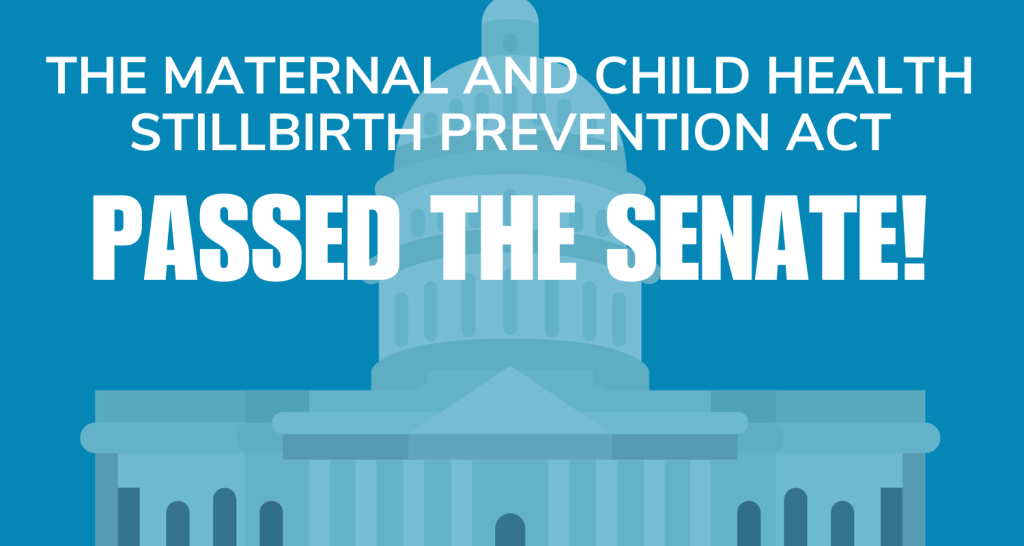
We are thrilled to let you know the Maternal and Child Health Stillbirth Prevention Act has passed in the United States Senate by unanimous consent. Senate File 2231 passed the Senate via hotline Saturday, Sept. 30, 2023. A huge THANK YOU to Senator Jeff Merkley (D-Oregon) and Senator Bill Cassidy (R-Louisiana) for leading this bill in the Senate and helping to ensure this bipartisan stillbirth prevention legislation moves onto the House of Representatives for consideration.
We would also like to thank all of the cosponsors of the bill in the Senate, including:
This tremendous step would not have been possible without the courageous advocacy of the 50 stillbirth prevention advocates from 21 states who traveled to Washington, D.C. with us for National Stillbirth Prevention Day in September, and the 25 advocates who joined us in May. Collectively, this group of advocates attended 160+ meetings to discuss stillbirth prevention legislation with members of Congress and their staff. With their help and voices of thousands of other advocates like you, the stillbirth crisis is finally getting the attention it deserves!
From our Founders, Ambassadors, fellow stillbirth prevention organizations, and the entire team at Healthy Birth Day, Inc., we would like to thank each and every person who has taken action to advocate for stillbirth prevention legislation in the 118th Congress. This tremendous progress would not be possible without YOU.
The Maternal and Child Health Stillbirth Prevention Act is still under consideration in the House of Representatives. The companion legislation to the Senate bill is H.R.4581, and it was introduced in the House by Rep. Ashley Hinson (R-Iowa) and Rep. Alma Adams (D-North Carolina) on July 12, 2023. The bill currently has 27 cosponsors in the House of Representatives.
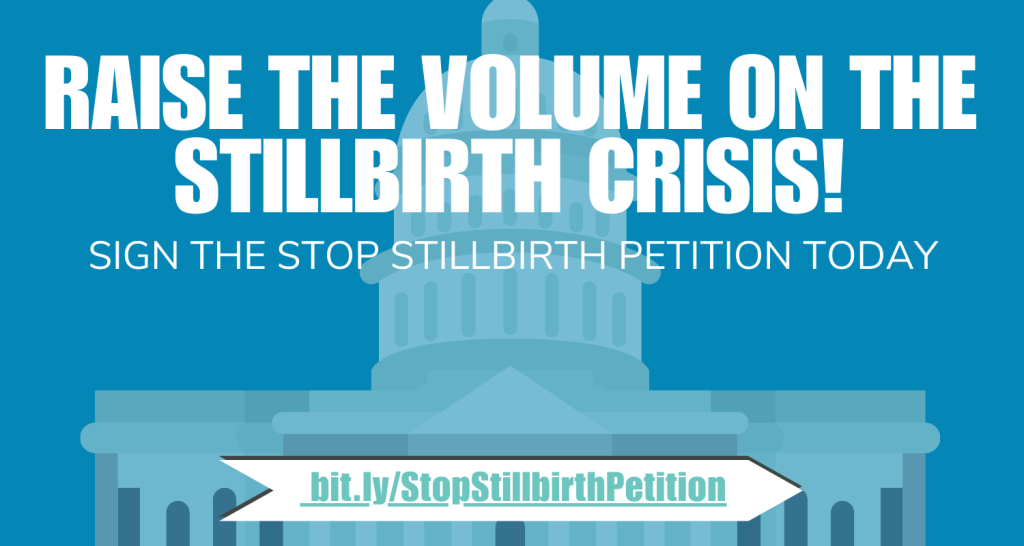
We have created a petition to help share your story with members of Congress. This petition will help legislators better understand why their support for both the Stillbirth Health Improvement and Education (SHINE) for Autumn Act (H.R. 5012/S. 2647) and the Maternal and Child Health Stillbirth Prevention Act (H.R. 4581/S. 2231) is crucial.
Please take a few minutes to complete the petition and share why stillbirth prevention matters to you!
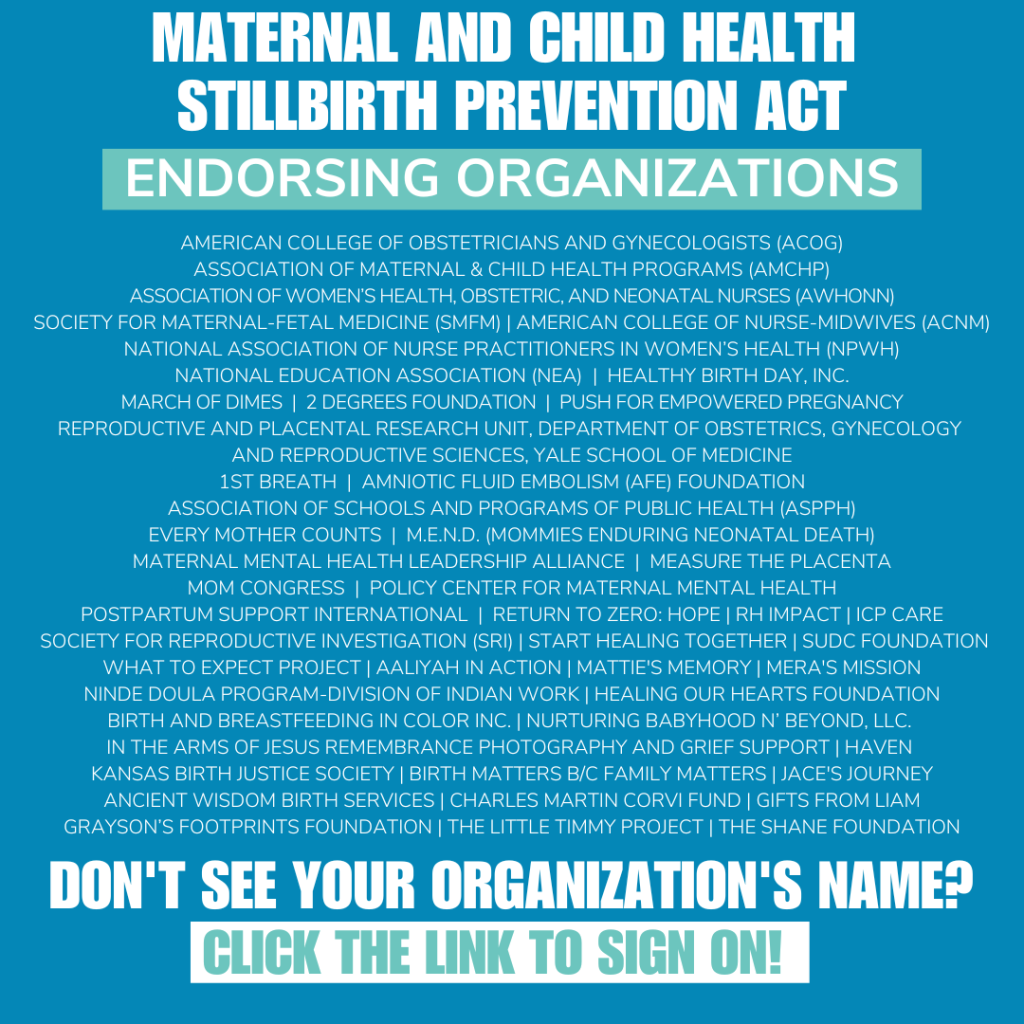
Thank you for helping us reach this milestone in the Senate and for your continued support to ensure we can push BOTH pieces of stillbirth prevention legislation through the finish line in Congress! Together we are creating systemic change for families in the U.S.
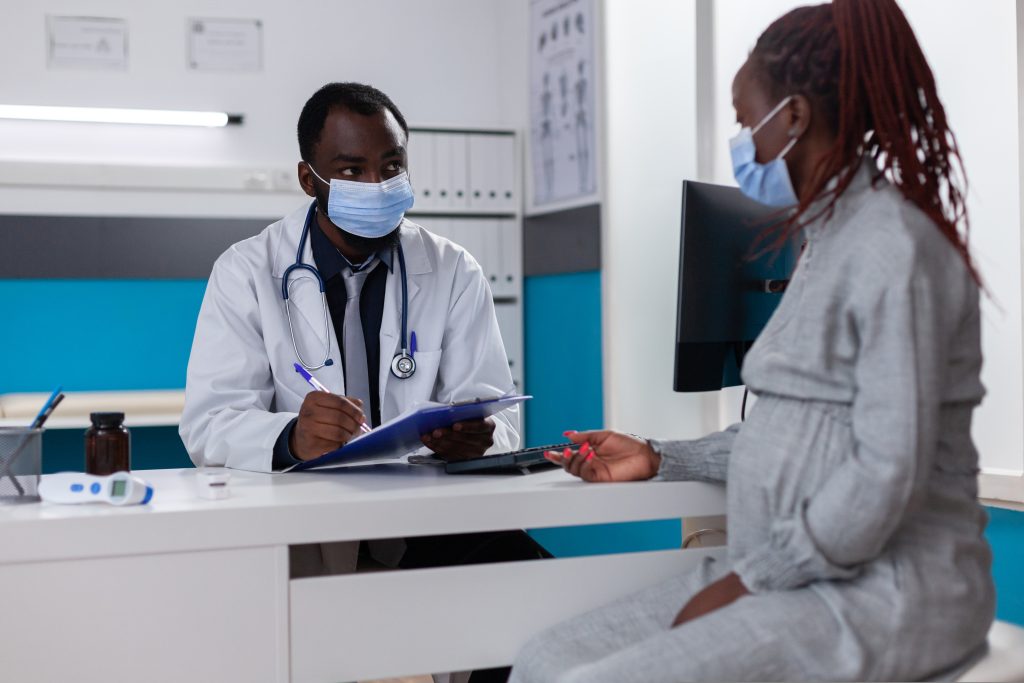
It was a Saturday morning when I noticed our son’s movements had changed. My husband and I were getting ready to leave to purchase a more family-friendly car. I drank orange juice. I drank ice water. I laid on my side. I Googled. After feeling his strong kicks for weeks, I dreamed he would be a soccer star, but suddenly his movements had become slow and weak.
Instead of calling my provider, I cried silently, brushed my feelings away as “just my anxiety,” and went shopping for a new car.
By Monday evening at 11:07 p.m., our son, Richard, was born. He had suffered a fetal maternal hemorrhage (when fetal blood cells pass into the mother’s bloodstream). The NICU team whisked him away, but it was too late. With my husband by his side, he died just an hour later.
For the last six years, I have replayed that final weekend in my mind. What should I have done differently? Would it have made a difference if I had called my doctor? What would my life look like now if I had spoken up?
When I became pregnant again, I vowed to no longer be silent. I could not save my son, but I could fight to have a safe delivery for my daughter. I recognized that, as her mother, I was her only voice.
Here is how I communicated effectively with my provider that made me feel comfortable and confident during pregnancy after loss.
My doctors were caught off guard when Richard died, so I wanted to make sure that a plan was in place for my next pregnancy. My husband and I had a preconception consultation with my Maternal Fetal Medicine (MFM) specialist to discuss my next pregnancy. He explained his role, how he would communicate with my OB, what kinds of monitoring that would take place, when the monitoring would occur and at what frequency, the potential complications, and the potential plans depending on how the pregnancy progressed. Before we even became pregnant again, I felt comfortable because I knew that everyone was prepared.
I knew that I would be anxious for the entire pregnancy — from the positive test to entering the OR for delivery. When I became pregnant again, I made these concerns clear to my provider. I wanted to be more vocal in my care this time.
With Richard, I worried too much about being an annoying patient or one that was bothering the doctors. With my daughter, I knew that I was her staunchest advocate, so I needed to speak up for both her and myself.
When I wanted clarification on test results, I called the office. When I questioned a new symptom, I called the office. When I worried about my daughter’s movement, I called the office. I did not hesitate, and I was persistent.
Since I was seeing multiple doctors, I knew that I needed to keep a good record of my appointments and new information. In between appointments, I kept a running list on my phone of every question I thought of. If I didn’t do this, I would completely forget by the time I saw my provider.
At each appointment, I kept brief notes of new information. Although my doctors promised to communicate with one another, there were times when information was either miscommunicated or not sent at all. These were the times that I was thankful for my notes. I was able to ensure that everyone was on the same page.
Doctors are incredibly busy, and before losing Richard, I would allow my appointment to be rushed. I never wanted to inconvenience anyone. However, with my daughter, I ensured that every question I had was answered and every concern I had was addressed. I knew how valuable this time with my provider was, and I wanted to feel comfortable before leaving the office.
Unfortunately, I did not know about Count the Kicks with Richard. My MFM told me about the campaign and taught me how to use it to correctly track my daughter’s movement.
Since I was a high-risk pregnancy, I began counting kicks using the app at 26 weeks. I watched the graph of her movement develop each week. If her movement changed at all, I immediately went to the hospital for monitoring and called my doctor. Count the Kicks gave me a sense of confidence as I navigated pregnancy after loss. I could speak up for myself and use the app’s graph as evidence to support my claims.
Finally, the best piece of advice that I could give to anyone navigating pregnancy or pregnancy after loss is that you know your body best. You have the closest relationship with your baby, and if you have a concern, you should speak up! Using the Count the Kicks campaign and app can help you communicate effectively with your provider.
Editor’s Note: Research shows that fetal movement is best monitored without interventions like juice, candy, or drinking ice water.
Author Bio: Jackie Mancinelli is a high school English and ESL teacher in New Jersey. She is the mother to two girls, ages 2 and 4, and a son, Richard, who passed away in 2016. She is the founder of Start Healing Together, an organization dedicated to supporting educators experiencing pregnancy loss and infertility. She is also a New Jersey Ambassador for Count the Kicks.
Courageous Advocates
Meet the powerful change makers turning their grief into fuel, shame into hope, and energy into action.
Advocates for Change

Courageous Advocates
Meet the powerful change makers turning their grief into fuel, shame into hope, and energy into action.
Advocates for Change
Debunking Myths About Baby's Movement in Pregnancy
Ambassador Amanda Duffy shares her personal experience with loss to debunk myths about baby's movement in pregnancy and share why kick counting is so important.
Read More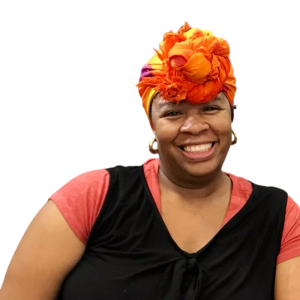
Nneka Hall is the mother of four (two Sunshines, ages 21 and 16, an Angel baby who would be 11, and a Rainbow who is 7). In 2014 she founded the Quietly United in Loss Together (QUILT) Campaign, which is a Pregnancy And Infant Loss Awareness campaign designed to raise awareness of all types of loss from conception through a child’s first two years of life, teach healthy fertility through womb health education, provide support to families who suffer these losses and provide support for PAIL organizations as needed.
As the mother of a stillborn baby girl turned Maternal Health advocate, it is Nneka’s goal to turn kick counting into a standard of care. Becoming a Count the Kicks ambassador made perfect sense.
Advocates for Change
Learn more about the courageous advocates who are helping us raise awareness and push for systemic change.
Learn MoreAdvocates for Change
Learn more about the courageous advocates who are helping us raise awareness and push for systemic change.
Learn More
Being involved with Count the Kicks has given me a place to put all the energy that I had planned to use for my son, Qasem into advocacy in his honor. I didn’t understand what a stillbirth was until he lost his heartbeat, I was admitted into the hospital to be induced, and they handed me a pamphlet entitled “stillbirth.”
I was enraged that I was never warned that this could be a possible outcome of pregnancy. I knew the chances of miscarriage, but after the first trimester, you were supposed to be safe. In my mind, there was no doubt that I would be taking my baby home in three weeks time. So If I, being a first-time mom that read and prepared for everything had no clue, then there had to be others that didn’t know either.
I had asked about kick counting because it was mentioned in my pregnancy apps, and was told if baby was active that it “wasn’t necessary.” That kick counting is saved for high-risk mothers, and I was as low risk as they come. But low-risk doesn’t mean no risk. I’ve met so many others whose stories sound just like mine. So I knew I had to share his story. Others had to know this could happen, and that there was a way to possibly prevent this outcome.
There have been so many times in my journey through grief, re-living moments and thinking “what if,” that drove me crazy. The biggest one being that I wish I had known this was a possibility. We had known a few friends that had gone through this, but I never knew or understood what happened, and I respectfully understood why they chose to keep it private.
That is why I chose to become what I wish I had. I told Qasem’s story to all our friends on social media; I am constantly reminding every pregnant friend to count their kicks in the third trimester (specifically to download the app), and I hand out app cards to random pregnant women I see out and about. All things I wish I had seen someone else do.
Count the Kicks is an incredible organization that has given me the opportunity to speak to nurses, doctors, politicians, and more. They give me a platform to continue to say Qasem’s name and tell his story. To spread awareness of how incredibly important it is to give this information to pregnant women.
The reasoning we’ve heard as to why stillbirth is not discussed with prenatal patients is that it’s “too scary.” We shouldn’t be treating prenatal patients as delicate flowers; we need to arm them with the information they need to feel empowered in their pregnancy, not afraid.
While we never got a chance to raise Qasem, he taught us more in his short life than we could have ever imagined. He made me a mother and an advocate.
Advocates for Change
Learn more about the courageous advocates who are helping us raise awareness and push for systemic change.
Learn moreAdvocates for Change
Learn more about the courageous advocates who are helping us raise awareness and push for systemic change.
Learn more